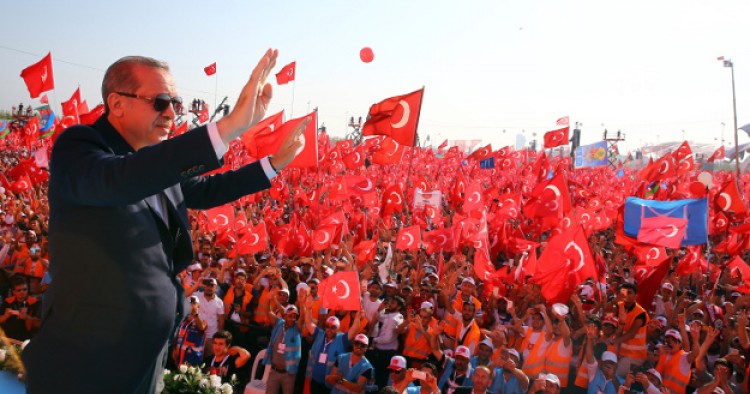Read the full article on Foreign Affairs.
Turkey’s military leaders rarely make public appearances at political events. But on August 7, General Hulusi Akar, the country’s chief of staff, appeared in uniform before a rally of more than a million people in Istanbul, alongside President Recep Tayyip Erdogan, Prime Minister Binali Yildirim, and the leaders of the Turkish opposition. Through numerous interruptions for applause, Akar thanked Turkey’s civilians for helping to quash July’s coup attempt and told the assembled crowd that the “traitors” behind that event would be punished harshly.
The vision of unity among the people, the military, and elected officials presented at the rally stood in sharp contrast to the bloody images that emerged after July’s unrest, which showed soldiers lynched by crowds and generals tortured by the police. It also underscored a transformation that is under way in the relationship between Turkey’s government and its military. Erdogan is attempting to balance two conflicting imperatives in his handling of Turkey’s armed forces. On the one hand, the president must rebuild a broken army into a strong and well-respected institution that can project power and meet security challenges ranging from Kurdish separatism to the terrorism of the so-called Islamic State, or ISIS. On the other, he has to ensure that the military will submit to his own authority. In balancing these demands, he will depend on a short-term alliance between his own Islamist government and secular ultranationalist elements in Turkey’s military and society: a marriage of convenience that will ultimately dim the prospects for peace between Ankara and the Kurdistan Workers’ Party (PKK) and could encourage Turkey to drift away from the West and toward China, Iran, and Russia [...]
The Middle East Institute (MEI) is an independent, non-partisan, non-for-profit, educational organization. It does not engage in advocacy and its scholars’ opinions are their own. MEI welcomes financial donations, but retains sole editorial control over its work and its publications reflect only the authors’ views. For a listing of MEI donors, please click here.












